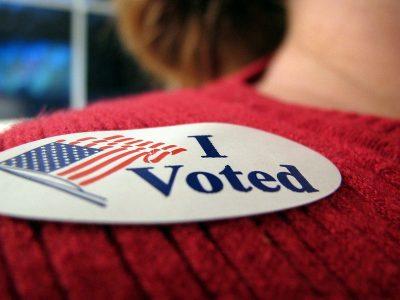
As a preliminary election approaches to narrow down which of the five candidates will compete for Boston’s mayoral seat, voters prepare to bring the city one step closer towards the historic November race.
Sept. 14 marks the day Bostonians can vote between Acting Mayor Kim Janey, Annissa Essabi George, Michelle Wu, Andrea Campbell and John Barros — for which two will go head-to-head on general election day Nov. 2.
Residents and students registered to vote in Boston have the option to vote by mail by Sept. 8. Individuals can send in their application online to be mailed a ballot.
Early voting starts Sept. 4 and goes until Sept. 10. Polls will be set up in Kilachand Hall to vote in person for election day Sept. 14, but students can find their closest polling location here.
The race on the 14th will bring the city one step closer to potentially electing the city’s first female mayor or mayor of color.
Here’s a brief overview of the candidates:
Kim Janey
Kim Janey, the first woman and first Black politician to hold the office of Mayor of Boston, took over after Marty Walsh stepped down to be President Joe Biden’s Secretary of Labor. Before that, Janey was the first woman elected to represent District 7 in the Boston City Council.
Janey plans to address policing by reforming criminal justice policies to avoid low-income communities of color being charged harsh penalties for minor offenses. She also pledges to invest in violence prevention and intervention strategies.
To address the housing crisis in Boston, Janey supports building new public housing units and supports legislation to allow cities to take charge in controlling high rent costs. She instituted a controversial eviction moratorium earlier this week.
Janey’s policies towards climate justice veer mainly towards cultivating a more green economy with environmentally friendly jobs for Bostonians, promising to allocate $4 million to the Green Jobs Program. She also prioritizes assisting marginalized communities with the effects of climate change and addressing environmental racism.
Andrea Campbell
Andrea Campbell currently serves as a city councilor for Boston’s District 4. She was the first Black woman to be elected as City Council President.
Campbell’s policies on improving housing in Boston vary from updating the zoning laws through a community-focused lens, making it more affordable for lower-income households, and creating private-public partnerships to bridge the racial wealth gap and help those affected purchase their first home.
In pursuing racial justice and public safety, she pledges to eradicate mass incarceration through access to equitable labor and mental health resources, allocate a portion of law enforcement funds to social services, and expand body camera use for police.
In the climate justice category, Campbell is calling for the city to become carbon neutral and run on 100% renewable energy by 2035. She also wants to expand the regional rail network, for example, by extending the Fairmount Line to reach underserved communities.
Michelle Wu
The first Asian American woman elected to City Council and first woman of color elected to Council President, Michelle Wu has served as councilor since 2013.
Wu seeks to reinstate rent control to help solve the housing crisis in addition to cooperating with state powers to expand emergency housing for families affected by violence and using city funds to help first-time homebuyers and disadvantaged people of color purchase homes for themselves.
Wu created her own Green New Deal plan just for the city of Boston, which includes working with unions to create green jobs to develop the economy and a net-zero carbon footprint by 2024 through mandating net-zero emissions from all Boston buildings and other measures.
On policing, Wu plans to establish an independent civilian review board to investigate police misconduct and will work to decrease housing instability, food insecurity, transit injustice, mass incarceration and the climate crisis as a means to address the underlying causes of crime.
Annissa Essaibi George
First-generation American and former teacher Annissa Essaibi George, was elected city councilor-at-large six years ago. She chairs the Committee on Education and is a voting member on six other community committees.
City Councilor Essaibi George’s climate justice policies center around cooperation with City of Boston departments and the communities in the city to build green infrastructure that works for the municipality and the people.
Essaibi George plans to work with the Boston Police Department to institute reforms and also invest in Emergency Medical Services so that the EMS has access to updated equipment.
Her answer to Boston’s housing crisis comes in the form of increasing the amount of housing available to the public, strengthening the current city housing fund to be competitive with private developers and empowering programs that prevent eviction to decrease homelessness.
John Barros
Chief of Economic Development John Barros’s housing policies include rent relief for tenants to avoid eviction, accessible education for tenants to understand and act on their rights and tax subsidies for construction companies to make housing more affordable.
Barros’ other policies include closing the racial wealth gap by expanding education and financial aid and enacting climate justice by creating a more walkable Boston and ensuring carbon neutrality in the next 30 years.
To improve public safety, Barros wants to establish working groups in Boston that help address the root causes of violence. He also plans to create a Safe and Healthy Communities Agency to give non-law enforcement responders the resources they need to respond to mental and behavioral health issues so that police don’t have to.





















































































































